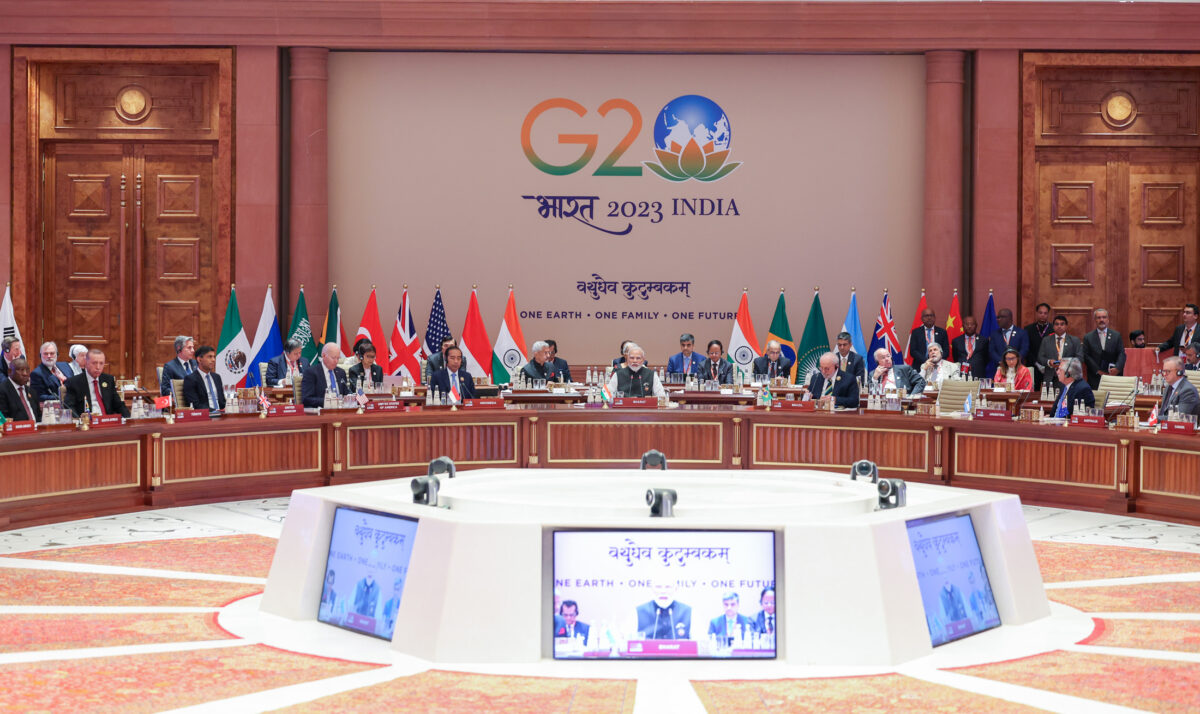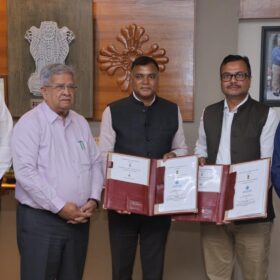G20 leaders, who met in New Delhi on Sept 9 and 10, agreed to pursue and encourage efforts to triple renewable energy capacity globally by 2030 through existing targets and policies. The leaders recognized the need for increased global investments to meet the climate goals of the Paris Agreement and to rapidly scale up investment and climate finance from billions to trillions of dollars globally from all sources.
In their joint declaration, the G20 leaders recognized the developing countries’ requirement of $5.8-5.9 trillion by 2030 to implement their NDCs, and $4 trillion annually for clean energy technologies by 2030 to reach net zero emissions by 2050. They agreed to work towards facilitating access to low-cost financing for developing countries, for existing as well as new and emerging clean and sustainable energy technologies and for supporting the energy transitions.
The G20 summit also saw the launch of a Green Hydrogen Innovation Centre, steered by the International Solar Alliance (ISA); Global Biofuel Alliance; and Resource Efficiency and Circular Economy Industry Coalition (RECEIC).
Vineet Mittal, founder of Avaada, and chairman of CII Green H2 Council, said the G20’s New Delhi declaration is a beacon of hope for a brighter, greener, and more inclusive future.
“The Global Biofuel Alliance initiative, led by Shri Narendra Modi Ji, highlights the importance of biofuels in shaping a greener future and strengthening energy security, especially for the Global South. It is clear evidence of Bharat’s dedication to being at the forefront of sustainable energy solutions… I want to express my heartfelt appreciation to Shri Narendra Modi Ji for his visionary leadership. His focus on public finance for climate initiatives, the promise to channel significant funds for climate finance, and the unwavering commitment to Sustainable Development Goals (SDGs) are truly praiseworthy.”
G20 leaders also committed to support the acceleration of production, utilization, as well as the development of transparent and resilient global markets for hydrogen produced from zero and low-emission technologies and its derivatives, such as ammonia, by developing voluntary and mutually agreed to harmonising standards as well as mutually recognized and inter-operable certification schemes.
This content is protected by copyright and may not be reused. If you want to cooperate with us and would like to reuse some of our content, please contact: editors@pv-magazine.com.









2 comments
By submitting this form you agree to pv magazine using your data for the purposes of publishing your comment.
Your personal data will only be disclosed or otherwise transmitted to third parties for the purposes of spam filtering or if this is necessary for technical maintenance of the website. Any other transfer to third parties will not take place unless this is justified on the basis of applicable data protection regulations or if pv magazine is legally obliged to do so.
You may revoke this consent at any time with effect for the future, in which case your personal data will be deleted immediately. Otherwise, your data will be deleted if pv magazine has processed your request or the purpose of data storage is fulfilled.
Further information on data privacy can be found in our Data Protection Policy.